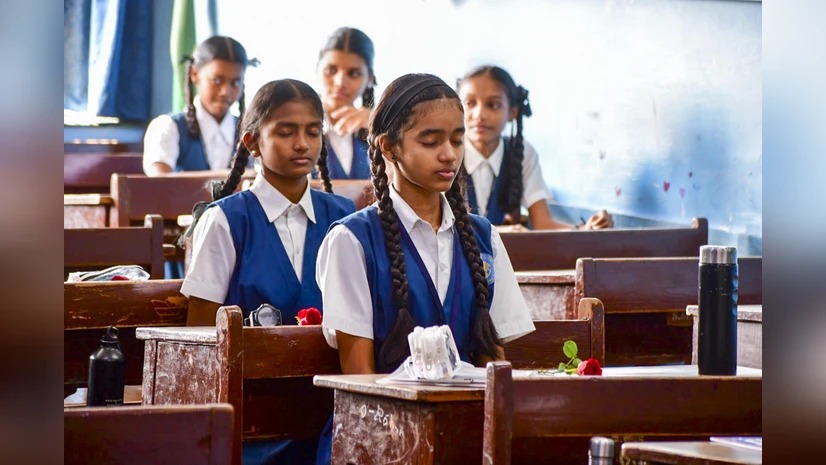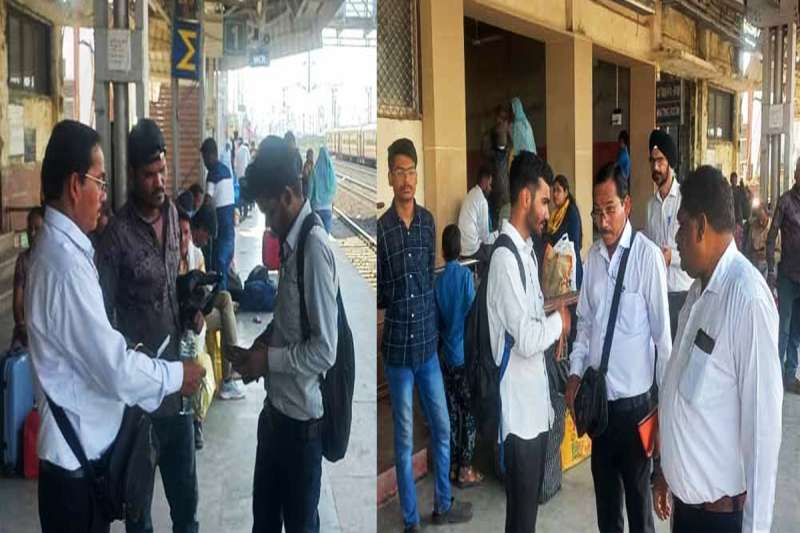@JUDGMENTTAG-ORDER
K.T. Thomas, J.@mdashPetitioner seeks to have the proceedings pending against him u/s 125 of the Code of Criminal Procedure quashed. Vijayalakshmi, the respondent herein, has initiated those proceedings on the ground that her marriage with the petitioner was solemnised on 13-9-1984 and that after a few weeks of married life, the petitioner deserted her and neglected to maintain her. The petitioner''s stand was that the marriage between him and the respondent is null and void as the respondent has been suffering from paranoid schizophrenia. The petitioner filed an application before the Sub Court, Mavelikkara u/s 12(1)(b) of the Hindu Marriage Act, 1955 for a declaration that the marriage is null and void. The respondent filed the application for an order for monthly allowance of maintenance u/s 125 of the Code of Criminal Procedure before the Judicial Magistrate of the First Class, Kayamkulam as M.C. 40/85. However, the parties later filed a joint petition in the Sub Court, Mavelikkara u/s 13B of the Hindu Marriage Act for a decree of dissolution of their marriage. It is said that the said application was disposed of by granting a decree of divorce as prayed for. The petitioner''s case is that in the joint application filed u/s 13B of the Hindu Marriage Act, the parties have stated thus : "We mutually agree and consent that neither of us has any claim or right on each other''s person or property". According to the petitioner, the said clause was incorporated in the joint application on the specific understanding that the respondent would withdraw her application for the grant of maintenance allowance. He now complains that the respondent, in utter disregard of the above understanding or agreement, is now pursuing the matter. Thereupon, he filed an additional counter-affidavit in M.C. 40/85 pending before the Judicial Magistrate of the First Class, Kayamkulam in which he raised the contention that the proceedings are liable to be dropped in view of the changed circumstances. As the learned Magistrate declined to accede to his request, he filed the present petition u/s 482 of the Code of Criminal Procedure.
2. learned Counsel for the petitioner raised three points at the time of his argument. The first is that since the respondent has ceased to be a wife as defined in Chapter IX of the Code of Criminal Procedure, her application for maintenance allowance cannot stand any more. The second contention is that since they are living separately by mutual consent as envisaged in Section 125(4) of the Code, the respondent is not entitled to receive any allowance from him. The third contention is that in the light of the specific agreement between the parties, the terms of which have been incorporated in the joint application u/s 13B of the Hindu Marriage Act to the effect that "we mutually agree and consent that neither of us has any claim or right on each other''s person or property", the respondent must be deemed to have relinquished her right, if at all any, for separate maintenance.
3. In support of the first contention the learned Counsel has referred to the inclusive definition of the word ''wife'' in the explanation toS. 125(1) of the Code. It reads thus : "wife" includes a woman who has been divorced by, or has obtained a divorce from, her husband and has not remarried". The learned Counsel argued that the respondent has not been divorced by him, nor has she obtained a divorce from him, since the decree of divorce was the result of the joint application in which both of them expressed their desire to have their marriage dissolved. There is no substance in this argument. Even if it is conceded for argument''s take that the respondent has not been divorced by the petitioner, by no stretch of imagination can it be said that the respondent has not obtained a divorce from her husband. To obtain a divorce from the other party to a marriage, procedures are prescribed by different statutes applicable to persons belonging to different communities. One such procedure, applicable to persons governed by the Hindu Marriage Act, 1955, is to present a petition to the District Court by both the parties to a marriage as envisaged in Section 13B of the said Act. Bhaskaran, J. (as his Lordship then was) has considered a similar argument in the decision reported in
4. The second contention is equally unsustainable that on the passing of the decree of divorce pursuant to the joint application u/s 13B of the Hindu Marriage Act, the spouses have started living separately by mutual consent. It is now well nigh settled that the benefits of Sub-section (4) of Section 125 are inapplicable in a case where marital tie has been broken by a decree of divorce. A Full Bench of this Court in the decision reported in
5. The third contention proceeded on the assumption that a wife has a legal right to claim maintenance from her husband and that she is entitled to relinquish the said right either as per an agreement or by other means. The learned Counsel contended that the terms of agreement incorporated in the joint petition that neither of the parties shall have any claim or right on each other''s person is evidence of a voluntary relinquishment of the respondent''s right to claim maintenance u/s 125 of the Code. Reference was made to the observations of Lodha, J. in
6. Chapter IX of the Code of Criminal Procedure is not based on any assumption that it is the legal right of a wife to claim maintenance from the husband. The purpose of enacting Section 125 of the Code is not to recognise or create a right as such in favour of a wife. It is intended to ameliorate a social problem which concerns destitution or vagrancy. The primary object of the section is to prevent starvation and vagrancy of persons unable to maintain themselves. In the words of Subba Rao, J. (as he then was) in
We have said and it needs to be said again, that Section 488 is intended to serve a social purpose. It provides a machinery for summary enforcement of the moral obligations of a man towards his wife and children so that they may not, out of sheer destitution, become a hazard to the well''being of orderly society. As against this Section 23 and other provisions of the Hindu Adoptions and Maintenance Act relating to fixation of the rate of allowance, provide for the enforcement of the rights of Hindu wives or dependents under their personal law.
Those observations were made while dealing . with Section 488 of the Code of Criminal Procedure, 1898, which corresponds to Section 125 of the new Code. Hence, those observations are germane for consideration u/s 125 of the Code as well. Though three classes of persons can avail the benefit of Section 125 of the Code, it is subject to a basic condition that the person concerned "is unable to maintain himself or herself. Those three classes include a wife, a child, a father/mother. They belong to the weaker section in the society and their inability to maintain themselves may lead to social problems. Naturally, it became the concern of the State not to allow such inability to grow into Social problems of great magnitude. Unless the consequences of the said inability are checked by providing appropriate/ measures, large scale vagrancy will be the probable offshoot therefrom. The Parliament, in its desire to find a solution to the above problem, has evolved a procedure which has found expression in Chapter IX of the Code of Criminal Procedure. Thus it is the public policy that a wife or a child or father or mother, who is unable to maintain herself or himself, should be paid maintenance allowance by the husband or father concerned, who can afford it. If he neglects to do so, he must be made to do it. It is a basic principle of law that an agreement which is opposed to public policy cannot be enforced in a court of law. Section 23 of the Contract Act renders such an agreement void if its consideration or object is unlawful. If the object or consideration of an agreement would defeat the provisions of any law, and if it is opposed to public policy, the agreement will be treated as unlawful, and consequently void. In that view of the matter, a clause in an agreement that the wife shall not be entitled to claim maintenance from the husband cannot be used as a defence in proceedings u/s 125 of the Code. In Damodaran v. Lakshmikutty Amma 1979 KLT 543 Khader, J. held that no party can be permitted to contract out of such an obligation. The said view was also based on Section 23 of the Contract Act. That apart, the relevant clause in the joint application filed u/s 13B of the Hindu Marriage Act does not absolve the petitioner of his obligation to pay maintenance allowance to the respondent in the event of her becoming unable to maintain herself. For this reason also, the said clause in the joint application cannot be made available to the petitioner as a defence in the proceedings u/s 125 of the Code.
For the aforesaid reasons, no relief can be granted to the petitioner in this case. This petition is accordingly dismissed.

